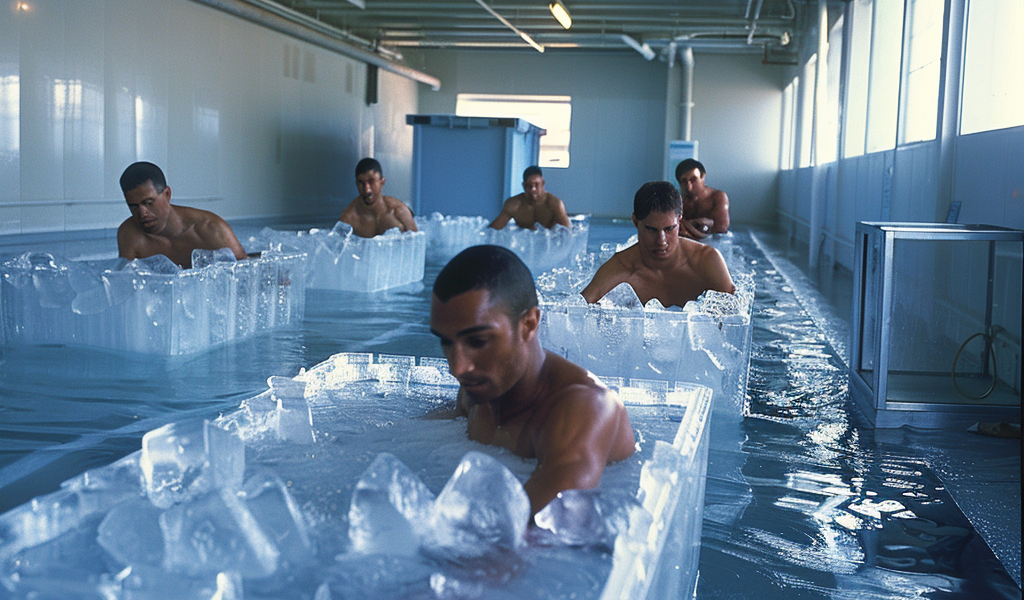As the Paris Olympics draw near, the demand for ice therapy has reached unprecedented levels, raising concerns among researchers about its environmental impact and the lack of scientific backing for its benefits. The use of ice in various forms, including cold-water immersion and ice baths, has become a popular trend among athletes and health enthusiasts alike, touted for its potential to alleviate a range of conditions from menopause symptoms to arthritis and muscle soreness.
However, a team of academics from France, Qatar, India, and Switzerland has published an editorial in the British Journal of Sports Medicine, arguing that the clinical benefits of ice therapy are not substantiated by solid evidence. They emphasize that the current demand for ice at the upcoming Olympic Games is unsustainable and poses a significant strain on local and regional resources.
For the Tokyo 2020 Olympics, approximately 22 tonnes of ice were supplied to competition venues for medical purposes, with an additional 42 tonnes available in the Olympic Village. In stark contrast, the anticipated ice requirement for the 2024 Paris Olympics is set to soar. Initial estimates suggested a staggering need for 1,624 tonnes of ice, which would cost around €2.5 million. However, due to challenges in sourcing this quantity from independent vendors, the organizers revised their target to 650 tonnes—450 tonnes for the Olympics and 200 tonnes for the Paralympics.
The rising reliance on cold-water immersion as a recovery method has been notable in recent Olympic Games. For instance, in Athens 2004 and London 2012, cold-water immersion accounted for about 10% of treatments prescribed by physiotherapists. This figure surged to 44% by the time of the Rio 2016 Games. Notably, 98% of these immersions were for recovery purposes, with the remaining 2% aimed at treating injuries.
While cold-water immersion can be effective in treating heat exhaustion and alleviating muscle soreness after exercise in hot conditions, experts caution against its use for recovery between consecutive high-intensity training sessions or for immediate recovery following resistance exercises. The researchers argue that the environmental costs associated with the production, storage, and transportation of ice cannot be overlooked, especially in light of the climate crisis.
The editorial highlights the pressing need for a reevaluation of the practices surrounding ice therapy in sports. As the popularity of ice baths and cold-water swimming continues to grow, it is crucial to consider the ecological footprint of these practices and to seek evidence-based alternatives that do not compromise the health of our planet.
With the Paris Games fast approaching, the conversation surrounding the use of ice therapy is more relevant than ever. As athletes prepare to compete at the highest level, balancing performance recovery with environmental responsibility will be a critical challenge for organizers and participants alike.





